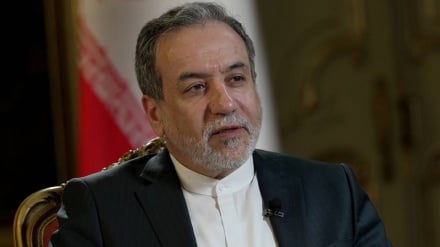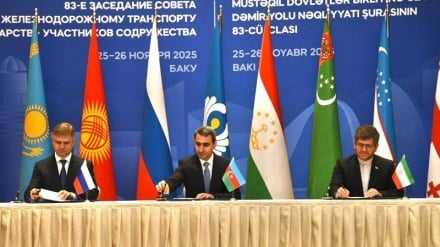Yemenis appeal to Russia for help
Mahdi al-Mashat, President of the Yemeni Supreme Political Council (the political wing of the Ansarollah movement) has requested Russia for help in resolving the military conflict in Yemen. In a letter sent to President Vladimir Putin, Mahdi al-Mashat emphasized the “aggression against Yemen” and “the military escalation perpetrated by the so-called Saudi-led coalition of Arabian states.”
The main focus of the letter was on the US influence in the region, and especially in the Red Sea, and the straits leading to it. According to Ansarollah’s Supreme Political Council, it is the USA that is responsible for the growth of the conflict. The goal of western countries is to “spread chaos in Yemen and throughout the region.” The situation in Yemen has worsened in the area around the strategically important port of Al Hudaydah, on the Red Sea. In June the Saudi-led coalition began Operation Golden Victory, the goal of which is the expulsion of Yemenis from the city. The military operation was launched in spite of warnings by the UN. Mahdi al-Mashat has called the operation a “plot against Yemen.”
It is not unusual for politicians from Ansarollah to send letters of this type. The group quite often appeals to various international bodies, especially the UN, as well as to important and influential countries. And the attack on Al- Hudaydah, supported by Saudi Arabia and the UAE, and which threatened to cause a humanitarian catastrophe, was abandoned partly thanks to protests by the international community coupled with the upper hand of the Yemeni forces in fending off the intruders. And this is not the first time Ansarollah has tried to initiate contacts with Russia.
Representatives of the movement have been to Moscow for bilateral talks on several occasions. Some sources report that they proposed giving Russian companies access to Yemen’s oil and gas reserves. Yemen’s real value, however, does not lie in its oil or gas. Like Syria, it is important, first and foremost, because of its infrastructure and transport potential. The Bab-el-Mandeb, the strait connecting the Indian Ocean to the Red Sea and controlling access to the latter, has a strategic importance equal to that of the Strait of Hormuz and the Suez Canal, especially in view of the volumes of oil and liquefied natural gas passing through it on the way from the Persian Gulf nations to Western Europe.
Yemen’s fugitive and deposed president Abdrabbuh Mansur Hadi was supposed to serve for just 2 years: he was appointed as a short-term “emergency” president. His task was to bring about a national dialogue and hold legitimate elections in 2015. Abdrabbuh Mansur Hadi’s authority expired, but no new president has been named. In order to hang on to power, in 2015 he asked foreign countries – the Saudi-led coalition, together with Sudanese mercenaries – to intervene in order to save and back up his regime. This illegitimate president and the coalition of foreign interventionists are being opposed by local groups in Yemen. They styled themselves as a national liberation army to fill the security vacuum. It is interesting that most of the Russian coverage of the Yemeni conflict tends to sympathize with the Ansarollah movement and the revolutionaries. And now Moscow has, in effect, been asked to intervene in yet another war in the Middle East.
In any event, the general situation in the north of Yemen is going very badly, and this is unlikely to change soon. The humanitarian situation in the country is catastrophic: Yemen is already afflicted by famine and epidemics, war, and bombing.
On the other side of the story, for decades, the autocratic regime of Saudi Arabia has been a stalwart ally of the US military, while oppressing its own people and attacking others in the Middle East, particularly in Yemen.
Here, the leader of Yemen's popular Ansarollah movement could be accurate when he said Saudi Arabia and the United Arab Emirates are going to great lengths to further the agenda of the US administration in the Middle East region and please their masters.
In his words: Riyadh and Abu Dhabi regimes are struggling with mounting economic crises as they are pouring huge sums of money into the pockets of US statesmen. The US and the usurper regime of Israel are doing their best in order to bring all aspects of Yemenis’ lives under their control. They are seeking to transform Yemen into a society beset with problems, diseases and ethical issues.
Few Americans know much about Saudi Arabia; it is certainly America’s closest military ally, better to say a stooge, in the Persian Gulf. For decades, its army has served as a proxy force for the US and its regional designs in the region. In 2015, the Saudi military and allies, with US support, launched a dirty war in Yemen in order to occupy and destroy the nation, and plunder its mineral riches on the pretext of establishing the alleged ‘democracy’.
Today, thousands of US-supported Saudi-led troops are battling the Ansarollah movement fighters in Yemen. President Donald Trump’s Arab allies are now negotiating the recruitment of thousands of Africans to join the horrifying quagmire in Yemen.
In exchange for Saudi military favors and cash, Washington has long turned a blind eye to grave human-rights abuses and brute force committed by the autocratic regime against its own people. The United States is also ignoring one of the most evil and blatant assaults on humanity in Yemen.
The situation in Yemen is so bad that even American media outlets have finally acknowledged what the United Nations reports and activists have been saying for well over three years: The Saudi-led coalition’s brutal bombing campaign, which has ravaged Yemen and created a humanitarian catastrophe, would be impossible were it not for US support.
It comes a bit late, considering the US-backed bombing began in March 2015 — and, since then, thousands of civilians have been killed; millions have been displaced; more than half of the country, at least 14 million people, are going hungry; and parts of major Yemeni cities have been pulverized.
Many media outlets are also saying what the United Nations and human rights groups have been saying for years: The United States is complicit in this carnage. It has enabled the Saudi-led coalition in many ways, including selling arms, logistic and intelligence support.
To that end, the US has also supplied the Saudis such indispensable assistance as intelligence, in-flight refueling of aircraft and help in identifying appropriate targets. The Saudis and their coalition will be grounded if Washington withholds its support. Instead, the US has approved the sale of $1.15 billion more in tanks and other equipment to Saudi Arabia to replace items destroyed in the war. It has also aborted any move against Riyadh at the UN that sought to end the war.
Media outlets in the United Nations also recognize numerous UN reports that have found the Saudis responsible for the deaths and injuries to Yemeni children, along with reports by human rights groups that document war crimes committed by the so-called Saudi-led coalition.
Many of these basic facts should be more than enough for the international civil society – particularly the UN – to step in, to blast the US and the Saudi-led coalition for enabling the humanitarian crisis that’s underway in Yemen, and actually do something about it and stop the war, if anything at all. The bombing campaign that has caused the cholera outbreak in the poorest country in the Arab world could not happen without the United States.
Without a doubt, the humanitarian catastrophe is caused by the actions of the United States and by the actions of its NATO partners, such as Britain and France. The world community has a responsibility to stop the Saudis and their coalition, of which the US, Britain and France are a part, from using blockade and starvation as a weapon of war. This is a stain on the conscience of the Western world if they continue to enable the humanitarian crisis that’s underway in Yemen. Russia is also expected to intervene appropriately to end the crimes against humanity, as called for by Yemeni people.
That was an article on the role of certain foreign powers in the unprovoked Saudi assaults on the impoverished Yemen. That was complemented with excerpts from an article by Pyotr Lvov, Ph.D in political science.
EA/SS


